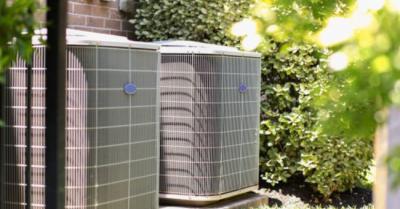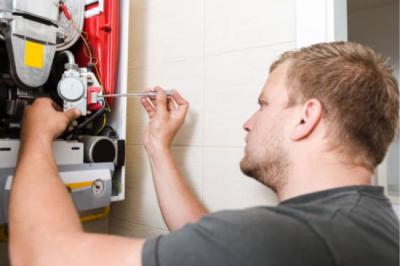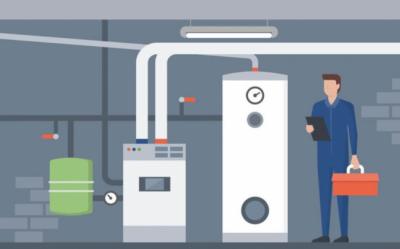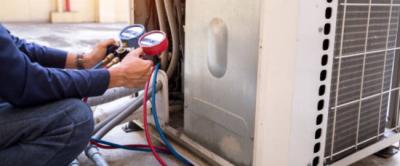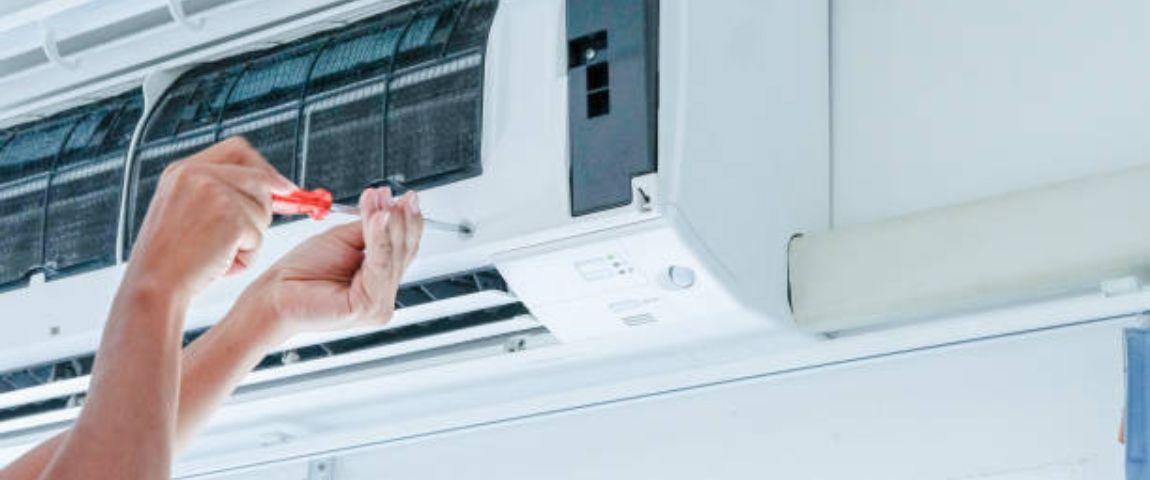
AC Installation Companies Explain Items Polluting Indoor Air
Indoor air quality is crucial in maintaining a healthy and comfortable living environment, as explained by AC installation services provider. Many people are unaware that their homes can harbor numerous pollutants that adversely affect their health. In this article, we at Wayne's Heating & AC will discuss common indoor air pollutants that can contaminate the air inside your home and provide insights into how to address them effectively.
Common Indoor Air Pollutants Explained by an AC Installation Contractor
Awareness of the air pollutants and action is vital in maintaining healthy indoor air quality. Understanding the common indoor air pollutants discussed in this article and implementing appropriate measures can create a clean and safe environment for you and your family. Our installation company also offers services like regular cleaning, proper ventilation, using air purifiers, and opting for low-toxicity products that significantly reduce indoor air pollution and remove pollutants. At HVAC Services, we are dedicated to providing comprehensive solutions to improve indoor air quality and ensure the well-being of our customers.
Volatile Organic Compounds (VOCs)
VOCs are emitted as gases from various household products such as paints, varnishes, cleaning supplies, and furniture. Prolonged exposure to high levels of VOCs can lead to respiratory problems, eye irritation, and even organ damage. To reduce VOC levels, opt for low-VOC or zero-VOC products, ensure proper ventilation, and use air purifiers with activated carbon filters.
Mold and Mildew
Moisture-prone areas like bathrooms and basements provide ideal mold and mildew growth conditions. Inhaling mold spores can cause allergies, respiratory issues, and infections. AC installation companies recommend regularly inspecting and fixing water leaks, maintaining proper ventilation, and using dehumidifiers in damp areas to prevent mold growth.
Dust Mites Trigger Allergic Reaction
Microscopic dust mites thrive in bedding, upholstered furniture, and carpets. Their feces and body parts can trigger allergic reactions and worsen asthma symptoms. Frequent dusting, vacuuming with HEPA filters, and using allergen-proof covers on mattresses and pillows can help control dust mites. Other causes of poor indoor air quality include mold growth in damp areas such as bathrooms and basements, pet dander, tobacco smoke, and pollutants from household cleaning products.
Prevent Pet Dander After Window AC Installation
Pets, especially cats and dogs, shed dander containing allergenic proteins. These proteins can trigger allergies and asthma attacks in sensitive individuals. Regular grooming, vacuuming with HEPA filters, and creating pet-free zones can help reduce pet dander in the air after your HVAC installation.
Tobacco Smoke
Secondhand smoke from cigarettes and other tobacco products is a major indoor pollutant. It contains thousands of toxic chemicals, most importantly nicotine, that can cause respiratory illnesses, heart disease, and cancer. Our window AC installation company, Wayne's Heating & AC, suggests implementing strict no-smoking policies indoors and encouraging smokers to do so outside, away from open windows and doors.
Carbon Monoxide (CO)
CO is a colorless and odorless gas produced by incomplete combustion of fuels like gas, oil, and wood. It can be deadly if inhaled in high concentrations. It can cause symptoms including dizziness, headaches, fatigue, and confusion because the oxygen supply to the brain is inadequate. Install carbon monoxide detectors near bedrooms and fuel-burning appliances, ensure proper ventilation, and maintain appliances regularly to prevent CO buildup.
Radon Causing Severe Damage
Radon is a naturally occurring radioactive gas that can seep into homes through cracks in the foundation. Prolonged exposure to high radon levels can increase the risk of lung cancer. Test your home for radon, and if levels are elevated, consult a professional like our AC unit install staff to mitigate it by sealing cracks and installing ventilation systems.
Formaldehyde is Another Colorless Gas
Formaldehyde is a colorless gas emitted by various household products, including pressed wood furniture, carpets, and insulation materials. Prolonged exposure can cause respiratory irritation and may be carcinogenic. We recommend choosing products labeled as formaldehyde-free, ventilating the area well, and considering using air purifiers with activated carbon filters.
Particulate Matter
Particulate matter (PM) refers to tiny particles suspended in the air, such as dust, pollen, and combustion byproducts. These particles can aggravate respiratory conditions and contribute to the development of cardiovascular diseases. Regular cleaning, using high-efficiency air filters, and ensuring good ventilation can help reduce PM levels.
Household Chemicals
Common household chemicals found in cleaning products, air fresheners, and pesticides can release harmful pollutants into the air. These chemicals cause health issues like skin, throat, and nose irritation.These pollutants can’t be denied, but individuals can take proactive measures to improve indoor air quality and create healthier living environments by becoming aware.You can visit our AC installation company’s website to have further insight into how to improve indoor air quality.Here are three questions to further enhance the relationship between pollutants and indoor air quality.
Frequently Asked Questions
What are the four sources of indoor pollutants?
The four sources of indoor pollutants explained by AC installation staff are combustion processes (such as cooking and heating), building materials and furnishings, household cleaning and personal care products, and outdoor sources (including air pollution that infiltrates indoors).
How can we stop house pollution?
To prevent house pollution, ensure proper ventilation, use low-emission building materials, regularly clean and maintain HVAC systems, reduce the use of chemical cleaning products, and limit exposure to indoor pollutants from smoking and other sources.
What everyday things cause pollution?
Everyday things that can cause pollution include vehicle emissions, industrial activities, power generation, burning of fossil fuels, improper waste disposal, chemical cleaning products, and agricultural practices.
Our A/C went out and, though he could not come out that evening because he was so busy, Wayne kindly took the time to walk my husband through a temporary fix so that we did not suffer without a/c. He came the next day and competently replaced a damaged part for a very reasonable fee. We are so pleased with him and highly recommend him!
- Davelyn Vignaud
